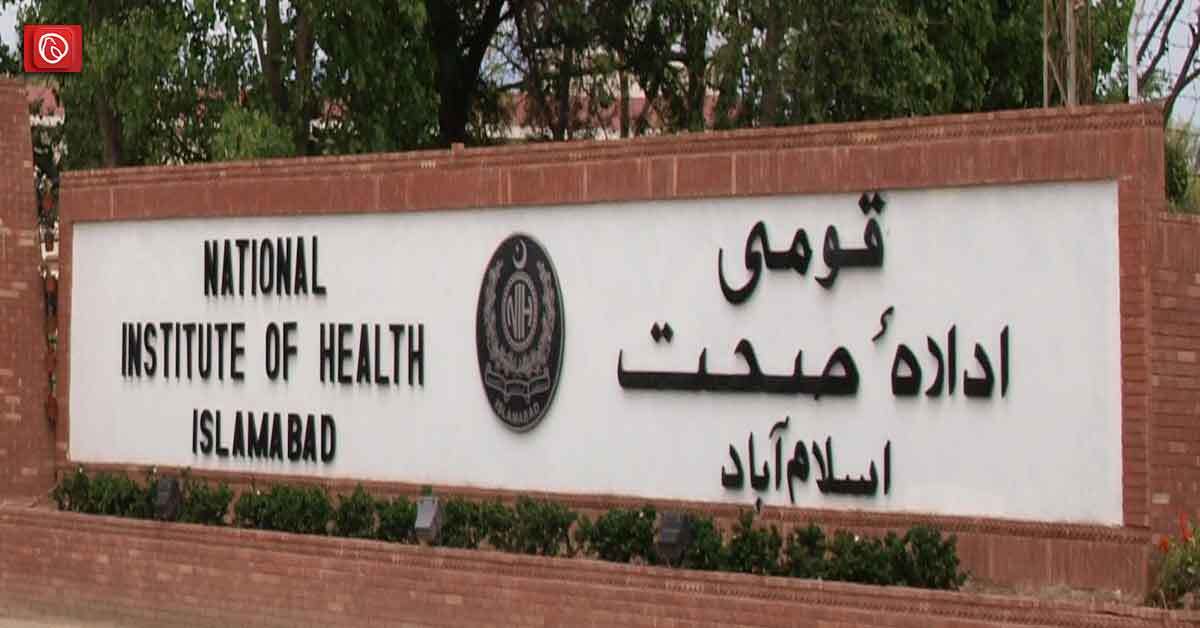
Welcome to the heart of healthcare excellence in Pakistan’s capital city, Islamabad—the National Institute of Health. With a legacy that spans decades, the National Institute of Health, Islamabad, commonly known as NIH, plays a pivotal role in safeguarding the health and well-being of the nation’s populace.
In this blog, Graana.com embarks on a journey to explore the vital functions, groundbreaking research, and invaluable contributions that the National Institute of Health brings to the forefront of healthcare in Pakistan.
From disease surveillance to public health initiatives, from cutting-edge research to a commitment to a healthier Pakistan, join us in uncovering the essential role played by NIH in shaping the healthcare landscape of the country.
The National Institutes of Health Islamabad, as a prestigious public health organisation, is dedicated to providing a wide range of healthcare services and facilities. With a strong commitment to multi-disciplinary approaches, technical expertise, administrative excellence, and comprehensive health services, NIH is at the forefront of addressing pressing challenges such as epidemics, viral disease outbreaks, and emerging infections within the population.
Notably, the Institute has played a crucial role in the battle against the Covid-19 pandemic. NIH’s impact extends beyond crisis management; it continually contributes to advancements in laboratory techniques, diagnostics, vaccines, immunisation, and the quality control of food and drugs. The organisation is also a driving force behind significant research programs in the health sector, fostering innovation and progress.
Moreover, NIH places a significant emphasis on professional development by offering excellent training facilities to health professionals, equipping them with the latest knowledge and skills needed to address evolving healthcare needs. Through its multifaceted efforts, the National Institutes of Health Islamabad is a vital institution dedicated to improving public health in Pakistan and beyond.
Following are some of the institutes and centers of NIH:
The mandate of the Centers for Disease Control is given in the bullets:
Functions of the Center are as follows:
Disease-Specific Unit Functions
Surveillance and Monitoring
Testing and Quarantine Policy
Respect, Dignity, and Privacy
The role of the National Health Research Institute is given in the bullets below:
The functions of the Institute are as follows:
Role of the National Health Laboratory is mentioned below:
Functions of the Laboratory are as follows:
The Health Data Center will function as the primary national repository for all health-related information and data. It operates under the guidance and assignments given by the Federal Government or the board. Its responsibilities include:
The Institute of Nutrition and Health is responsible for carrying out various functions as directed and assigned by the Federal Government or the board, which include:
The Vaccine and Biological Center is tasked with functions as directed and assigned by the Federal Government or the board, which encompass:
The Center for Occupational and Environmental Health is responsible for carrying out functions as directed and assigned by the Federal Government or the board. These functions include:
Following are a few FAQs regarding NIH:
The National Institute of Health Islamabad is a prominent health institution in Pakistan. It plays a critical role in various aspects of public health, including research, disease prevention, health policy development, and the promotion of healthcare initiatives.
The NIH Islamabad performs a wide range of functions, including conducting health research, managing public health data, providing guidance on nutrition and vaccine production, assessing environmental and occupational health hazards, and overseeing various centres related to health and disease control.
The NIH contributes to public health by conducting research, offering training programs, and providing expert advice to federal and provincial governments. It also collaborates with national and international organisations to develop strategies for controlling diseases, improving health standards, and enhancing healthcare services in Pakistan.
The Center for Disease Control, a part of the NIH, focuses on monitoring and controlling infectious diseases. It helps set strategic agendas, conducts disease surveillance, and offers technical support in disease control. It also oversees epidemic responses and collaborates with various organisations to combat public health challenges.
The National Health Laboratory functions as a central repository for health-related information and data. It conducts various tests and analyses, collaborates with researchers, and maintains data on various health aspects, including maternal and child health, communicable and non-communicable diseases, and more.
The NIH ensures that its advice, policies, materials, research findings, and reports are readily available to the general public through its website, making it an accessible source of information for those interested in public health in Pakistan.
The Vaccine and Biological Center is responsible for producing vaccines and biological materials. It also conducts training programs, collaborates with research institutions, and promotes research activities for the development and improvement of biological products and vaccines.
Yes, the Center for Occupational and Environmental Health within the NIH Islamabad focuses on evaluating and advising on environmental hazards and occupational safety. It develops guidelines, assists in policy formulation, and acts in an advisory capacity to address specific environmental or occupational hazards.
To stay informed about the NIH’s activities, research, and health-related developments, you can regularly visit its website. There you will find valuable information, reports, and research findings that are made available to the general public.
Yes, the National institute of Health Islamabad collaborates with international research institutions, organisations, and agencies to stay at the forefront of global health initiatives. These collaborations often result in shared expertise and strategies for addressing health challenges.
This was all about NIH. for more information on similar topics like Sindh Healthcare , visit Graana.com.
ISLAMABAD, Pakistan – April 23, 2025 – Chaaye Khana, Pakistan's popular cafe renowned for its…
ISLAMABAD: Prime Minister Shehbaz Sharif laid the foundation stone for the Murree Road underpass on…
DUBAI: Pakistani real estate developers and representatives showcased a range of commercial and residential investment…
ISLAMABAD: Capital Development Authority (CDA) is currently undertaking a major Rs652 million project to upgrade…
Karachi – Mayor Barrister Murtaza Wahab has announced the launch of a citywide anti-encroachment operation…
ISLAMABAD: CDA Chairman Muhammad Ali Randhawa has directed the immediate restoration of 23 non-functional water…